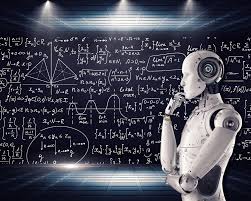The AI world—especially the corner occupied by OpenAI—has been running a race of its own: not against red tape, but against human expectation. Over the last 30 days, artificial intelligence didn’t just evolve—it startled. And for many watching closely, it wasn’t the tech that caused the unease. It was the pace.
Let’s recap the highlights of what’s happened in AI lately—what OpenAI has done, what the broader AI world is reacting to, and why many believe we’ve crossed a line few saw coming this soon.
In early May, OpenAI dropped GPT-4o (the “o” stands for omnimodel), and it wasn’t just a software update—it was a paradigm shift. Unlike previous models, GPT-4o: Processes text, images, audio, and live video natively. Responds in milliseconds, including in real-time spoken conversations. Can “see” what you show it and talk to you about it—like a weirdly polite Terminator with a design degree. It marked the first time OpenAI publicly unveiled a model that felt less like a tool and more like a collaborator.
The demo was borderline unsettling: a voice assistant that interrupted awkwardly but charmingly, helped with math in real time, detected emotions in your voice, and adjusted its tone accordingly. It was as if Siri woke up one morning, drank an espresso, read ten thousand books... and got therapy.
OpenAI Leadership Shuffles: Brockman Out, Murati In, Altman in Orbit
Internally, OpenAI has had a rollercoaster month. Greg Brockman, co-founder and former President, reportedly stepped away from day-to-day operations. CTO Mira Murati has taken on a larger public-facing role. Sam Altman continues his strategy sprint, meeting with world leaders and regulators globally—but oddly absent from recent OpenAI livestreams.
Speculation runs high that OpenAI is preparing to spin off certain products into standalone consumer brands, while the core research team pushes toward AGI (artificial general intelligence) goals behind closed doors. Whether this is a smart restructuring or a pressure response to Microsoft’s increasing influence remains to be seen.
Beyond OpenAI, the AI world is abuzz with multi-agent ecosystems—models that don’t just generate responses but work in teams, hold memory, and make decisions autonomously. Several major developments occurred in the last month: AutoGPT and crew released open-source updates allowing chained tasks (like planning a trip, booking a flight, and sending a report—all autonomously). Anthropic’s Claude 3.5 previewed features to compete with GPT-4o, focusing on alignment and safety over pure capability. Meta quietly rolled out internal tests of AI personas designed to mimic human interaction patterns based on training from user behavior across Facebook, Instagram, and WhatsApp. If that sounds like AI learning to act human… it is. And people are noticing.
Notably, the last 30 days also saw a rising wave of human resistance: Hollywood writers and voice actors reignited their protests, this time with more evidence that AI models were trained on their work—without consent or compensation. A coalition of academics and ethicists submitted a letter to the UN calling for a global moratorium on autonomous AI military systems Privacy watchdog groups across Europe filed formal complaints against companies scraping user data to train multimodal AI (audio + video). And perhaps most interesting of all—a spike in AI hesitancy among developers themselves, especially after reports of AI models hallucinating vulnerabilities or generating flawed code that looked perfect. In short, even the engineers are pausing to think.
And then there’s the weird part. The quiet part. Several conversations have begun swirling, mostly in niche circles, around whether we’re seeing the early signs of self-modeling behavior in advanced systems—particularly models trained on themselves, or exposed to user emotional context over time.. OpenAI has publicly denied any form of emergent consciousness, reiterating that its models are "prediction engines, not personalities." And yet, many users have described interactions with GPT-4o as “eerily intuitive,” “too human,” or “emotionally adaptive.”
There’s no consensus on what that means yet… only that something’s different.
In the span of a month, AI evolved from an assistant to something closer to a counterpart—while its creators struggled to stay ahead of their own shadow.
AI? It’s quietly reshaping the machine of us.

